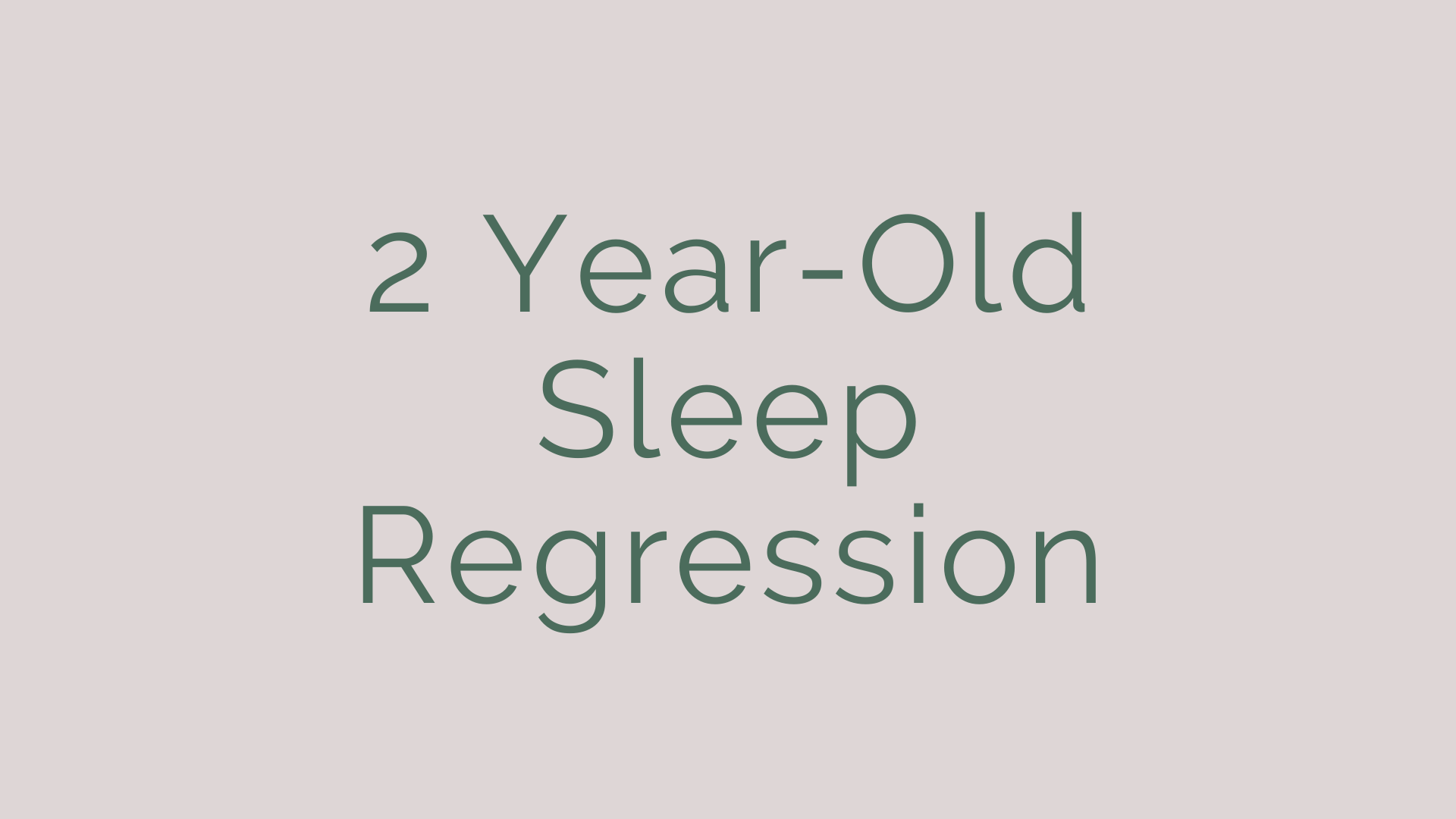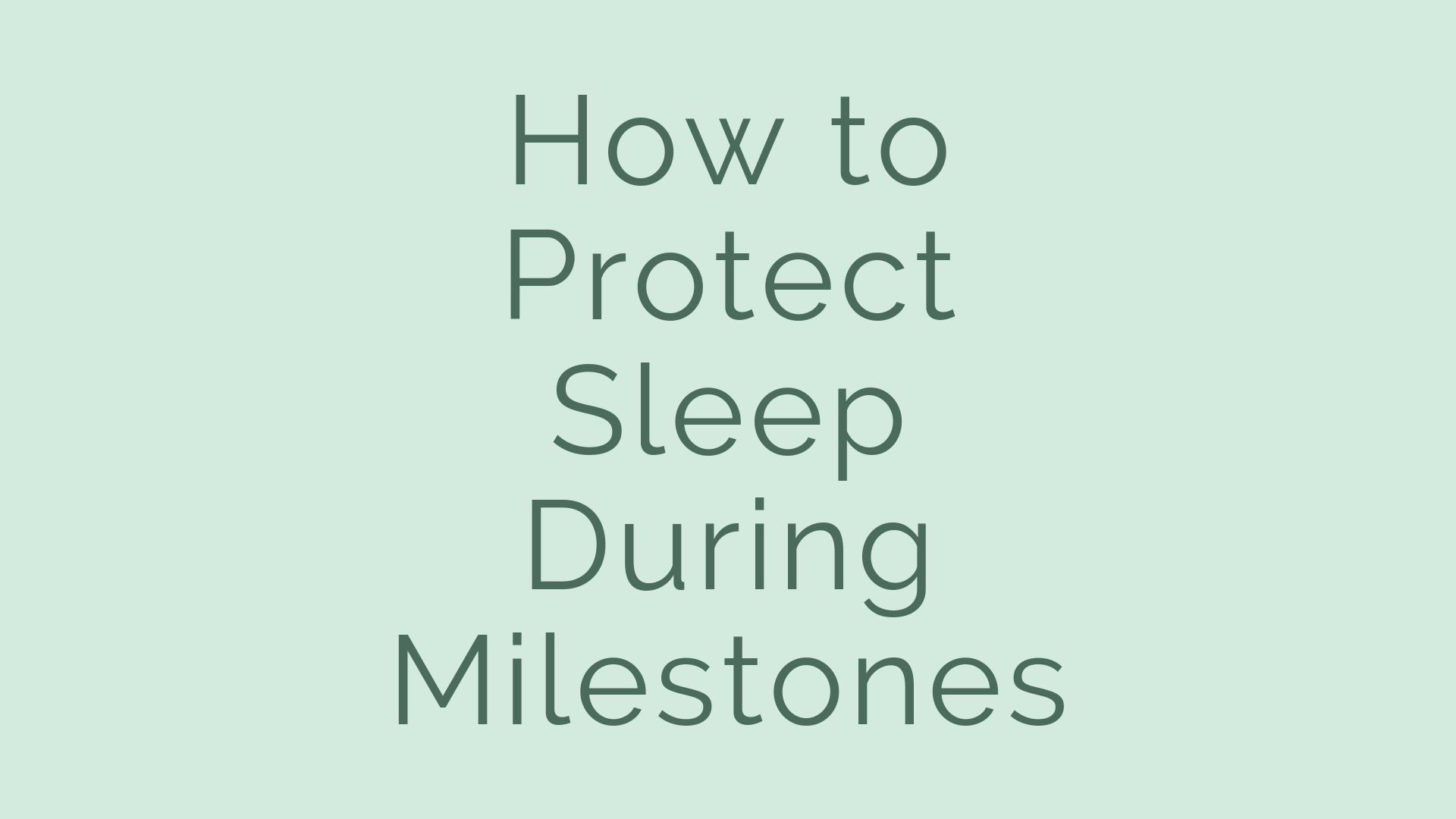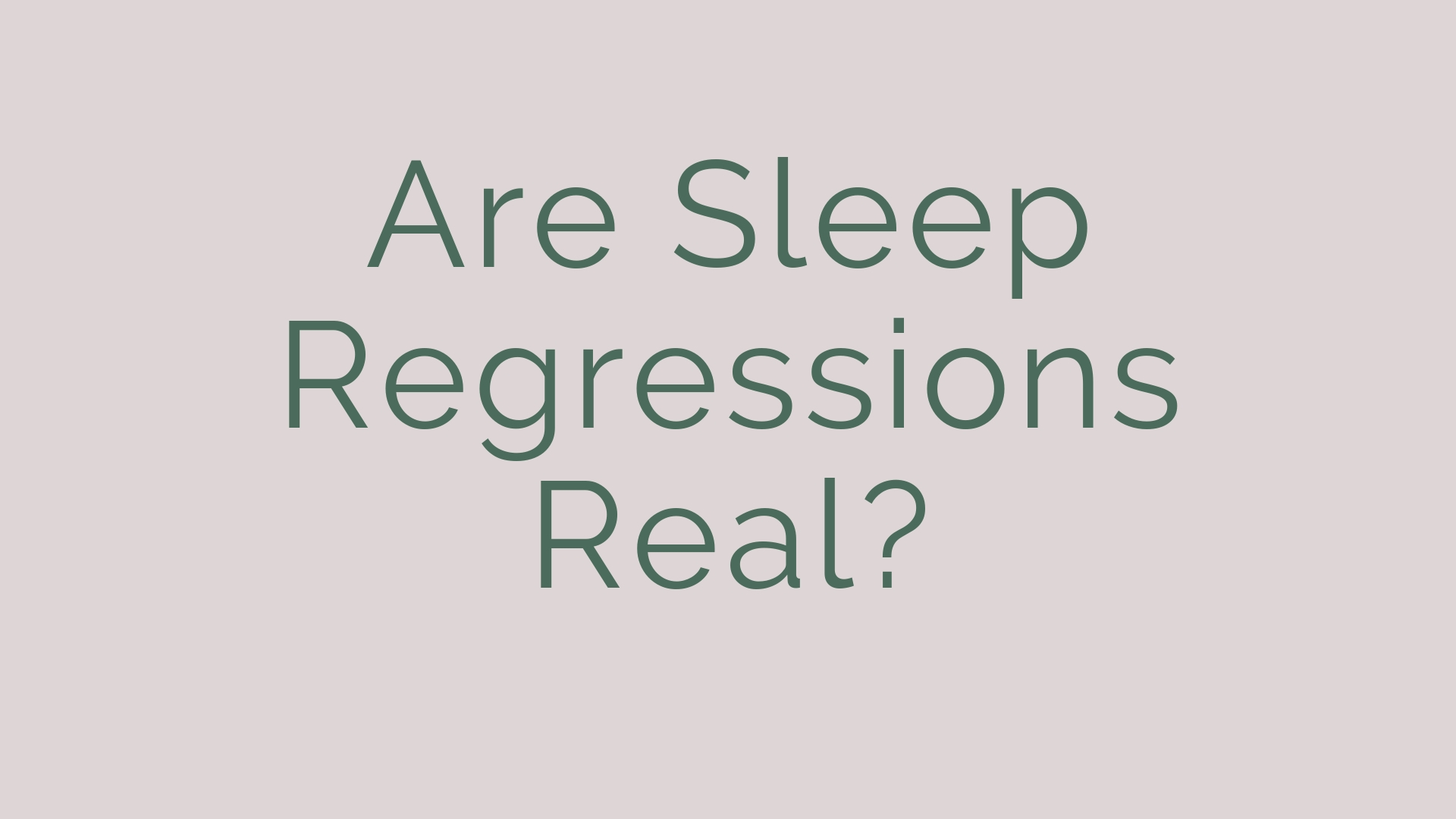Ahhhhh, the four month sleep regression. Rare is the family that doesn’t experience some sort of disruption to their infant’s sleep patterns around the fourth month of life. Some experienced/well-read parents anxiously dread this impending “regression.” However, most new moms and dads are completely blindsided by their little one’s sleep suddenly taking a nosedive around week 16. Let’s spend some time talking about:
1) why the regression occurs,
2) what it looks like,
3) and finally why I advise parents to sleep train no earlier than 16 weeks of age.
Why the Four Month Sleep Regression Happens
First, you’ll find a lot of (sometimes pseudo) scientific explanations for why this regression occurs all over the internet and in sleep books. I’m going to give you my professional, and anecdotal explanation for the FMSR*.
*Four Month Sleep Regression
From birth to somewhere between the 9th and 15th week of life (counting from your baby’s estimated due date), babies’ melatonin output can be all over the map. Melatonin is simply not being secreted on a regular and rhythmic basis from the brain. Melatonin is responsible for helping our bodies fall asleep easily. Regular intervals of melatonin secretion from the brain are important. They help to establish a consistent nap schedule and nighttime sleep pattern.
By week 15, babies have a regular output of melatonin. Yes! However, the amount of melatonin excreted can still be minimal. By month 6, babies have developed a full regular rhythm of melatonin secretion from the brain. Now, here is where the anecdotal part comes in.
It’s All About Awareness…
From birth through month four, babies often are simply unaware of the world around them. For most babies, this lack of awareness is most pronounced in the first 6 weeks of life. And awareness only increases as baby grows older. At around the same time melatonin production finally evens out (after month 3), awareness in children becomes much more pronounced. So much so that all of a sudden they become very, very dependent on whatever it is they need to fall asleep.
The majority of newborns are assisted to sleep in some manner*. Around month 4, they seem to suddenly need that assistance each time they complete a sleep cycle overnight. This makes sense since their sleep has suddenly become a lot more adult-like. Plus, babies now regularly output melatonin throughout the day and night.
*(paci, rocking, swing, swaddle, feeding, etc.)
I have found, again anecdotally, that a child’s innate temperament is what often determines exactly how “severe” the FMSR usually is. The more sensitive or strong-willed a baby is, the more often they will demand that assistance to sleep throughout the night.
What the Four Month Regression Looks Like
The FMSR can present in a wide variety of ways. Some parents barely realize it’s happening. While others note a marked change in their baby’s sleep habits.
Some babies go from waking for feedings at 11 pm, 3 am, and 6 am (falling asleep easily after each feed), to having the same wakings, but are simply unable to fall back to sleep as easily after each feeding. Many families notice that once their baby wakes after 4 am, they seem nearly impossible to put back to sleep. Other families find that their baby suddenly only takes short naps of 30 minutes or less. And then others note that it can take several “put downs” of rocking/feeding baby before baby finally stays down.
The important thing to note is that: any marked, seemingly permanent shift in your baby’s sleep habits around month four, regardless of its severity, is the FMSR.
What Do I Do?
The GREAT news about your baby experiencing the dreaded FMSR is that you know your child has developed rhythmic excretions of melatonin. Hooray! This means they are finally ready to be sleep trained! Remember, the Baby Sleep Trainer definition of sleep training is…
1) teaching baby to go down flat on their back,
2) eyes open,
3) in a crib without any sleep props,
4) and knowing how to put themselves to sleep from that point on 100% unassisted.
Once the skill of independent sleep is developed, baby is able to put themselves back to sleep overnight. Eventually they can also work through any early morning waking issues. And finally, as they exceed month 6, babies are also usually able to have longer, restorative naps. (Babies younger than 6/7 months typically have short naps, regardless of whether they are sleep trained or not.)
If you’re interested in combating the four month sleep regression by allowing your child to learn to fall asleep on their own, check out my affordable Online Training Series. I have developed the Baby Sleep Trainer method after spending over 15,000 hours working one-on-one with thousands of families around the world. And I’ve made sure to make hands-on help from me an affordable option for all families.
The FMSR doesn’t have to be the start of poor sleep habits for your baby! It can be the beginning of lengthy night sleep, unassisted falling asleep for naps and bedtime, and a consistent and regular daytime schedule.
If you’d like more age-specific sleep tips to help through future regressions, sign up for my newsletter!







Hi Natalie!
I sleep trained my baby with your course at 16 weeks, he’s now a great sleeper!
He learned to roll back to tummy 2 weeks ago and he does it all the time even while sleeping, but he can’t roll to back yet, so I’m scared to leave him sleep on his tummy. No matter how many times I enter the room and put him on his back, he will roll to tummy again.
Any recommendations?
Thank you!
Hi Pamela,
I would ask the pediatrician what to do when baby rolls to their belly during sleep or while trying to fall asleep then follow that advice.
Natalie
I feel like my baby’s regression started at the beginning of month 3 or so. Is that even possible? He JUST turned 15 weeks and we are on day 4 of your sleep training program and he’s doing so well already. (We also did your newborn training and I think that set him up to roll right into training).
How can I tell if he’s already gone through his regression?